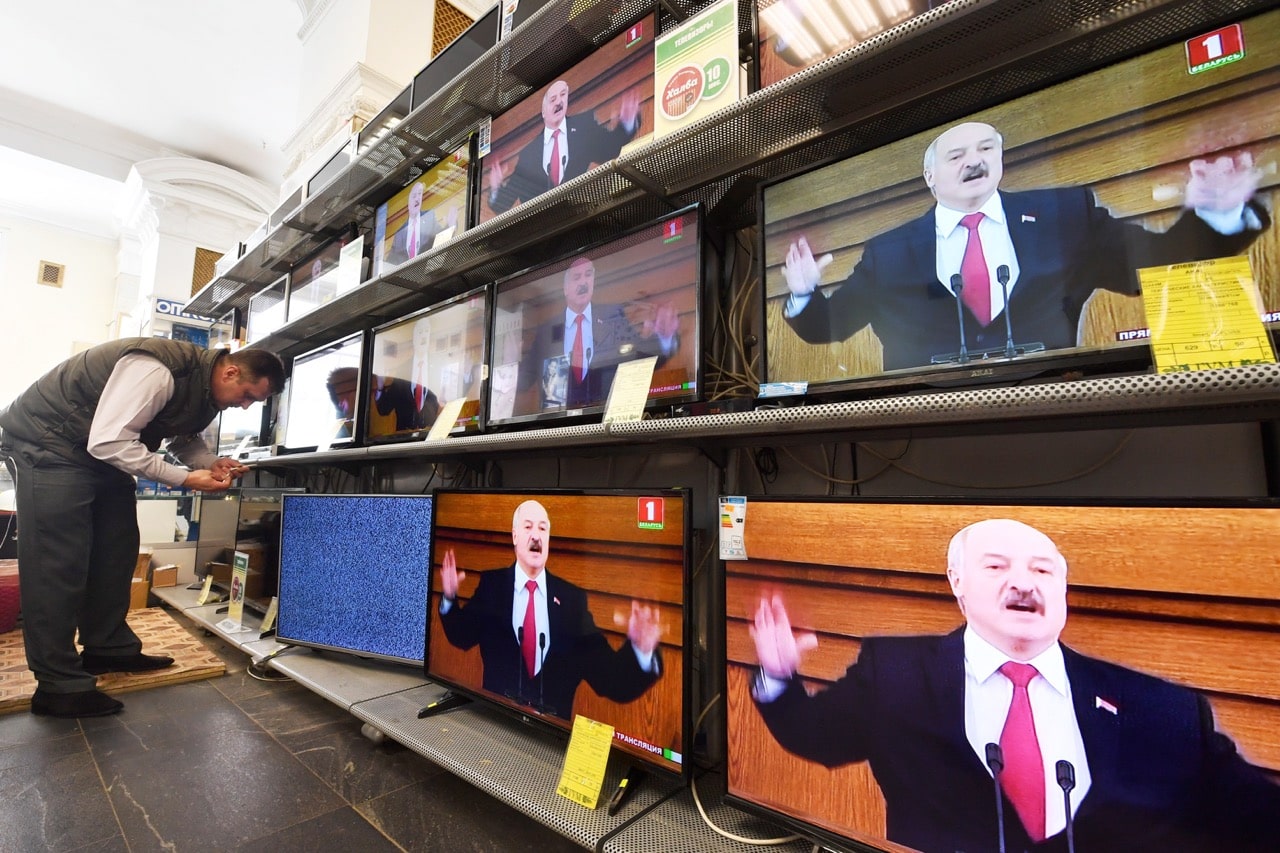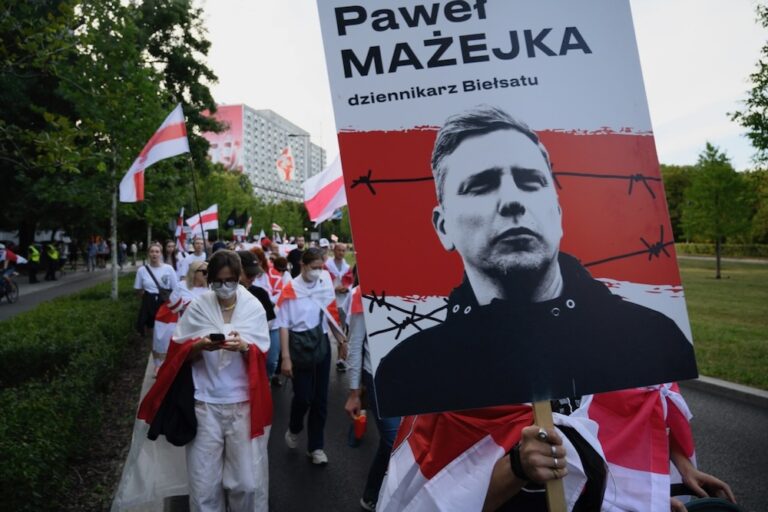The use of fines to target independent journalists is an increasing trend in Belarus, growing from ten fines imposed in 2016, to 69 in 2017, to 48 by mid-May 2018.
This statement was originally published on rsf.org on 17 May 2018.
Reporters Without Borders (RSF) again urges the Belarus authorities to end their growing judicial and financial harassment of independent journalists, who have received at least 48 fines since the start of 2018. Most have been imposed on journalists working for Belsat TV, an exile TV station based in neighbouring Poland.
How far will the authorities go in their use of fines to stifle the few remaining critical journalists in Belarus? In the week ending 14 May 2018 alone, no fewer than ten fines were imposed on Belsat TV journalists for “working for a foreign media without accreditation.”
The imposition of fines has become common in recent years and keeps on growing. The ten fines imposed in 2016 rose to 69 in 2017 and have already reached 48 in the first four and a half months of 2018 – 46 of which went to Belsat TV reporters.
The fines are based on an orchestrated vicious circle. Harassment forces independent media outlets like Belsat TV to relocate abroad but, under a 2008 law, journalists can be fined if they work for a foreign-based media without foreign ministry accreditation.
The authorities have rejected Belsat TV’s many requests for permission to open a bureau in Minsk and for accreditation for its correspondents. Forced to work illegally, these journalists not only have security problems and difficulty in getting access to official information, but they are now also increasingly being fined.
The fines hurt in a country where the average monthly pay is less than 400 euros. After being fined ten times last year, Belsat TV reporter Kastus Zhukouski has already received eight fines totalling some 2,300 euros in 2018. His colleague, Volha Chaychits, was fined seven times last year and has so far received five fines amounting to 1,700 euros this year.
The police specifically target Belsat TV reporters, according to Belsat TV correspondent Pavel Mazheyka, who was briefly arrested in March while filming an interview at a festival in Minsk and was fined 857 roubles (350 euros) on 14 May.
“Their aim is to punish and intimidate, in order to show that we are under their control, that they can catch us at any time,” he told RSF.
“The exponential rise in the number of fines imposed since the start of the year is indicative of a targeted campaign to silence Belsat TV’s reporters,” said Johann Bihr, the head of RSF’s Eastern Europe and Central Asia desk.
“Belarus’s international partners must urgently press the authorities to end the judicial and financial harassment of independent journalists. The accreditation requirement for foreign media must be abolished and not extended, as the proposed media law currently under consideration envisages.”
The harassment of government critics intensified after a wave of anti-government protests in the spring of 2017 that were covered by Belsat TV and other independent media outlets. Belarus is ranked 155th out of 180 countries in RSF’s 2018 World Press Freedom Index.

Belarusian Association of Journalists, RSF



